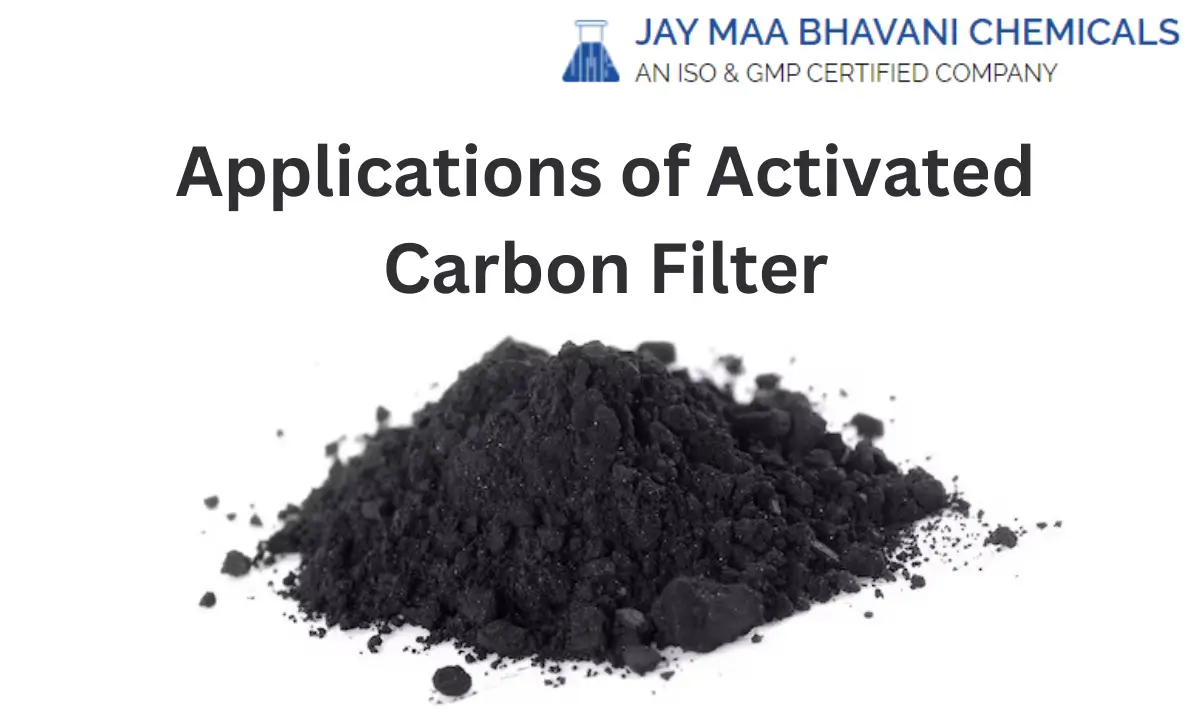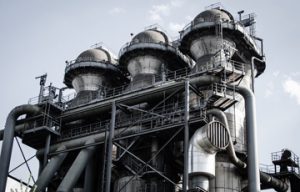Concerns about environmental exposure that is bad for human health are widespread. Several products use activated carbon, which is excellent for filtering water and air to eliminate pollutants and volatile organic compounds (VOC) from people's homes and everyday activities. Activated carbon is used in products including air purifiers, water purifiers, and respiratory masks.
It has been demonstrated that activated carbon is an effective material for adsorbing toxic gasses and fumes, and it is used to cleanse liquids and gasses in a range of applications of activated carbon, including the preparation of food, beverages, and water, as well as the elimination of odors and industrial pollutants.
How Does Activated Carbon Work in an Air Purifier?
A pre-filter, HEPA filter, and carbon filter work together as an air purifier to either trap or remove dust, mold, and allergies from the air. The ideal piece of equipment for people with asthma, respiratory issues, dust allergies, and those who are worried about their health and the air quality in their homes is an air purifier.
Together with the pre-filter and HEPA filter, activated carbon is placed into a thick or thin box (carbon filter) that is then introduced into the air purifier. The pre-filter will gradually accomplish its job of removing large particles, the HEPA filters will gradually remove tiny particles like mold and allergies, and the carbon filter will gradually remove smells, chemicals, and smoke before releasing clean air.
How Activated Carbon Works in Water Filtration?
A water filter reduces water pollution by using a thin physical barrier, a chemical reaction, or a biological reaction to remove contaminants. For many uses, including agricultural irrigation, accessible drinking water, public and private aquariums, and the safe usage of ponds and swimming pools, it is typically used to purify water to varying degrees.
Reverse osmosis devices and other water-filtering methods employ activated carbon. Purer water is produced as a result of the contaminants sticking to the carbon during water flow via active carbon filters.
Activated carbon filters for water treatment containing granular activated carbon (GAC) have been proven to be effective in removing certain pollutants from water, especially organic compounds. Besides removing chlorine and hydrogen sulfide, which give water an unpleasant taste or smell (like rotten eggs), GAC filters may also be used to remove other pollutants.
How Does Activated Carbon Work in Respiratory Mask
The respiratory mask is referred to as a mask that can filter polluted airborne particles and allergens. The human body is harmed by several volatile organic compounds (VOC) found in air pollution, including carbon monoxide and carbon dioxide.
Individuals search for ways to avoid or lessen inhaled air pollution because they are worried about air pollution and how it affects human health. Because the respiratory mask is loaded with activated carbon, which can absorb dust, volatiles, and air pollutants, it provides the best protection against air pollutants.
Applications of Activated Carbon
Applications of activated carbon are seen in a wide range of industries, such as analytical chemistry, metal polishing, groundwater remediation, and many more, due to their high absorption and vast surface area. By decreasing turbidity, they also help to purify chemicals and organic compounds.
Catalysts are needed for chemical synthesis in the majority of pharmaceutical and chemical activities. Activated carbon filters serve as appropriate carriers for precious metals and other catalytic applications due to their larger surface area, high inertness, and versatility. It has wide-ranging industrial uses.
Activated Carbon Filters for Water Treatment Plants
Activated carbon is used in sewage treatment plants. Industrial wastewater has to be properly filtered since it contains numerous organic compounds, dangerous chemicals, smells, and other pollutants. Activated carbon filters for water treatment facilities made in India are used to remove toxins from wastewater in different industries.
Granular activated carbon filters for water treatment are ideal due to its porous structure which helps in the removal of synthetic and inorganic contaminants. You may increase the carbon's ability to absorb by using heat and chemical activation methods. You can select the ideal kind of activated carbon for your industrial applications of activated carbon with our guidance.
Air Purification- Filtering Out Volatile Components
In addition to sewage treatment facilities, activated carbon filters are used in air and gas purification facilities. A powerful filtering method that prevents anaerobic decomposition is needed for smoke, odors, and other volatile pollutants. The filters aid in capturing flammable gas molecules on a bed of charcoal and eliminating them from the atmosphere. Hazardous gasses are easily absorbed by the porous surface of activated carbon. Moreover, they help in the absorption of hydrocarbons, oil vapors, and other toxic elements to improve airflow.
A powerful air filtration system is needed in the chemical and pharmaceutical industries to capture smoke, odors, and other volatile chemicals created during the manufacturing process. Due to the porous nature of the filter's construction, which provides a significant surface area to hold undesirable particles, activated carbon filters function to capture gas molecules and remove them from air circulation.
To eliminate the vapors, fumes, and particles of potentially dangerous substances being handled, ductless fume cabinets are used. These substances are captured by a carbon filter, preventing environmental pollution. To maximize gas absorption capacity while reducing flow resistance, it is crucial to make sure activated carbon air filters are balanced appropriately for the size of the system being used.
Filtering Organic Components in Drinking Water Treatment
For the purpose of providing the general population with clean drinking water, coagulation, sedimentation, and filtration are combined. One essential use of granular activated carbon is water treatment. Impurities stick to a material's surface due to the physical process of adsorption. Moreover, these filters perform better than sand filters in removing dangerous substances from municipal water. Some of these chemicals include chlorine, heavy metals, byproducts, and other volatile microorganisms.
Purifying Distilled Beverages
Activated carbon filters aid in the filtration of organic materials during the production of distilled drinks like whiskey and vodka. Similar to sewage treatment facilities, the filters improve the beverage's flavor, aroma, and color. Also, they can help in the production of fruit-based drinks and juices for improved fermentation processes and texture.
It is used in the purification of distilled alcohol. Moreover, the production of distilled alcoholic drinks like whiskey and vodka frequently makes use of activated carbon filters. Granular activated carbon can be used to filter away organic substances that detract from the beverage's flavor, aroma, or color, making it more appealing for ingestion.
Other Applications of Activated Carbon
Metal Processing
A variety of metal processing processes, including welding, grinding, cutting, lathe machining, and spray painting, can produce fumes that can cause corrosive reactions and result in expensive part repairs. Staff members who work in the same area are also at risk since the poisons might harm their health. To handle these problems and guarantee that your workplace is completely in compliance with the appropriate standards, activated carbon filters are used.
Producing Renewable Energy
Organic waste is processed by anaerobic digestion to produce biogas, a sustainable energy source. Unfortunately, a complicated mixture of gasses is produced during this process, some of which are poisonous and may cause corrosion in the combustion engine. By absorbing a significant fraction of the harmful compounds created during anaerobic digestion, activated carbon filters can help mitigate this issue and increase the amount of sustainable energy produced.
JMB Chemicals is a granular activated carbon supplier offering a wide range of activated carbon for any application, as per your preferences. If you are interested in our product, do not hesitate to contact us here.













